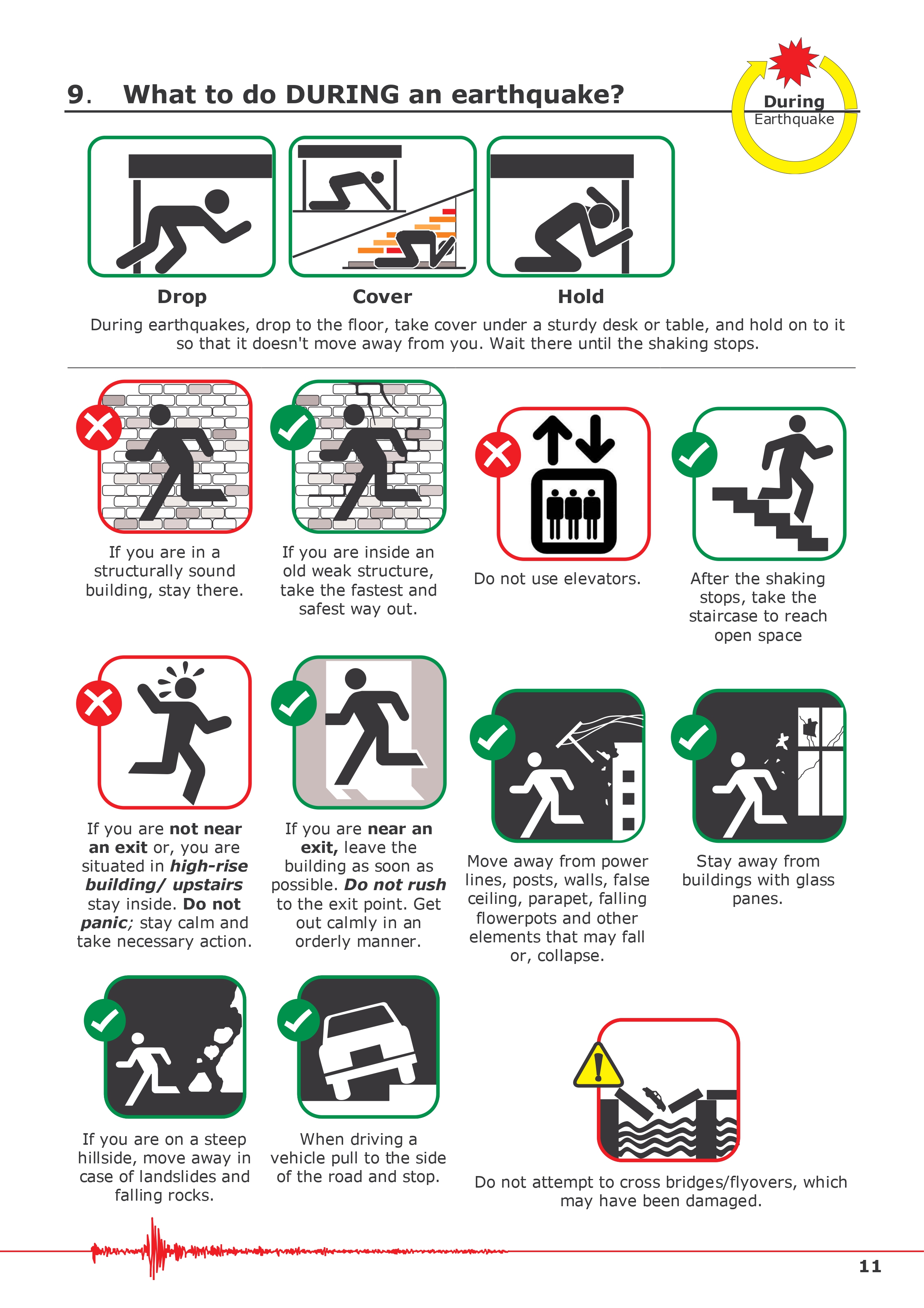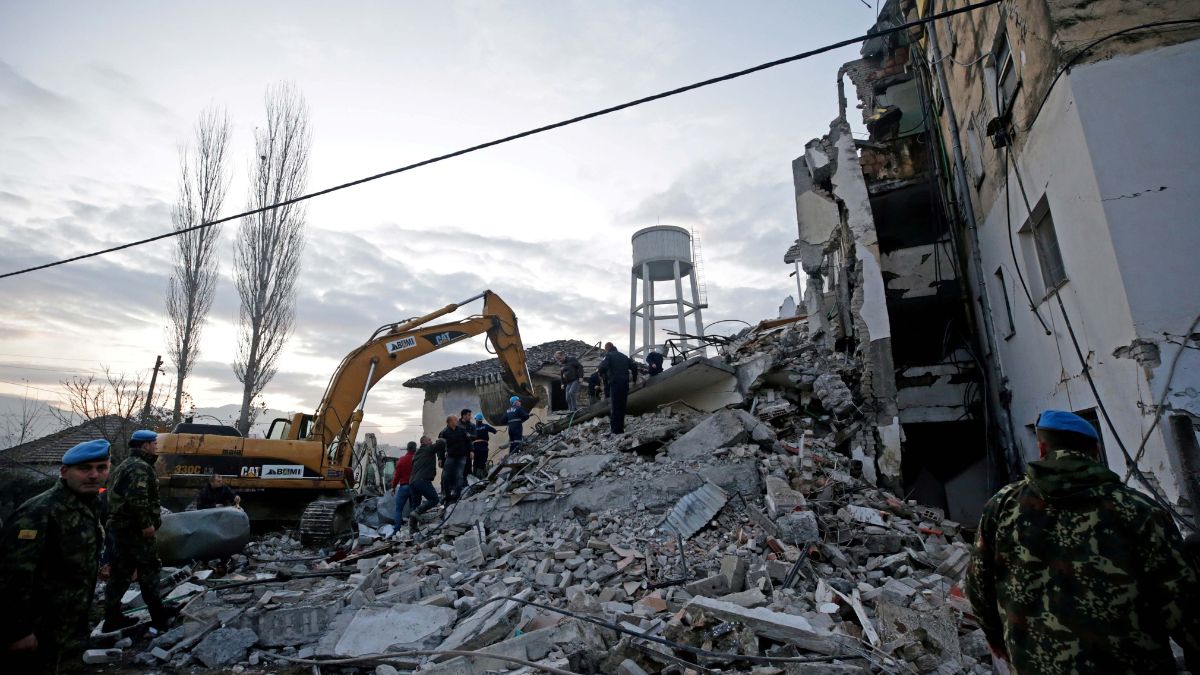- By Kamal Kumar
- Tue, 03 Oct 2023 03:23 PM (IST)
- Source:JND
The world experiences 55 earthquakes per day as per the National Earthquake Information Center (NEIC) of the USA. Many of the tremors are not even felt and considered harmless due to their weakness, however, sometimes powerful earthquakes strike and create havoc.
These are the guidelines that should be followed during an earthquake-
In most scenarios, you can ensure your safety by taking the following immediate actions:
1. DROP: Quickly lower yourself onto your hands and knees before the earthquake forces you down. This posture helps protect you from falling while still allowing movement if necessary.
2. COVER: Shield your head and neck (and ideally your entire body) by seeking refuge under a robust table or desk. If no shelter is available, position yourself near an interior wall or low-lying furniture that is unlikely to topple, covering your head and neck with your arms and hands.
3. HOLD ON: Cling to your chosen shelter (or protect your head and neck) until the shaking subsides. Be prepared to move along with your shelter if the shaking causes it to shift.
What to Do After an Earthquake

These guidelines prepared by the National Disaster Management Authority are to be followed immediately after an earthquake strike.
- Keep calm, switch on the radio/TV, and obey any instructions you hear on it.
- Keep away from beaches and low banks of rivers. Huge waves may sweep in.
- Be prepared to expect aftershocks.
- Turn off the water, gas and electricity.
- Do not smoke and do not light matches or use a cigarette lighter. Do not turn on switches. There may be gas leaks or short circuits. Use a torch.
- If there is a fire, try to put it out. If you cannot, call the fire brigade.
- If people are seriously injured, do not move them unless they are in danger.
- Immediately clean up any inflammable products that may have spilled (alcohol, paint, etc).
- If you know that people have been buried, tell the rescue teams. Do not rush and do not worsen the situation of injured persons or your own situation.
#Earthquake | Follow these do's and don'ts to ensure your safety before, during and after an #Earthquake. pic.twitter.com/xeNQDllySQ
— NDMA India | राष्ट्रीय आपदा प्रबंधन प्राधिकरण 🇮🇳 (@ndmaindia) October 3, 2023
- Avoid places where there are loose electric wires and do not touch any metal object in contact with them.
- Do not drink water from open containers without having examined it and filtered it through a sieve, a filter or an ordinary clean cloth.
- If your home is badly damaged, you will have to leave it. Collect water containers, food, and ordinary and special medicines (for persons with heart complaints and diabetes)
- Do not re-enter badly damaged buildings and do not go near damaged structures.
(Guidelines taken as it is from the NDMA website)

